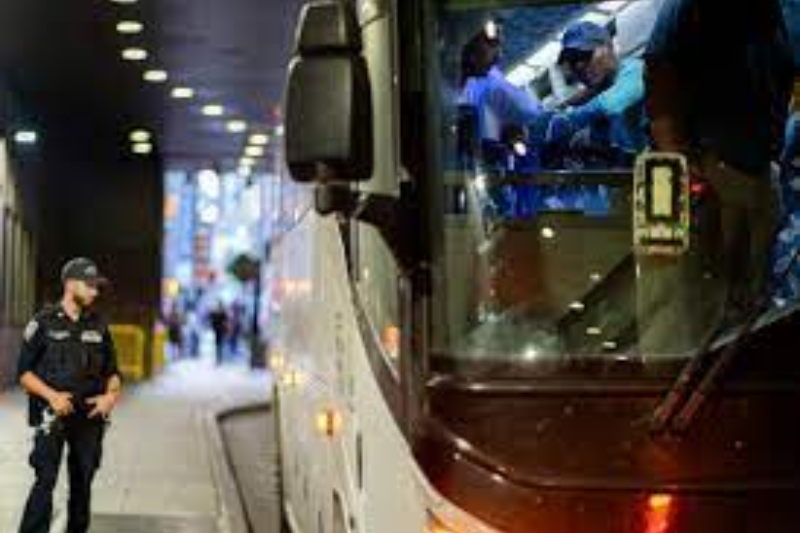
Democratic Governors’ Dispute Over Bussing Migrants: An In-depth Analysis
In recent times, a peculiar conflict has emerged among Democratic leaders, sparking controversy and highlighting the complexities of the migrant crisis in the United States. The clash revolves around the practice of bussing migrants between cities, leading to tensions between governors and mayors from various states. Let’s delve into the intricacies of this dispute and understand its implications.
The Background of the Conflict
The genesis of this dispute can be traced back to the migration influx that has overwhelmed many cities, particularly those in sanctuary states. Democratic leaders, while united in their opposition to Republican-led policies on immigration, find themselves at odds over the handling of migrants within their own jurisdictions.
The Illinois-Colorado Standoff
At the center of the conflict are Governor J.B. Pritzker of Illinois and Governor Jared Polis of Colorado. Governor Pritzker has openly criticized Governor Polis for allegedly facilitating the transit of migrants to Illinois, labeling it as ‘unhelpful.’ On the other hand, Governor Polis refutes these claims, stating that migrants are arriving in Chicago of their own accord, without any coercion from Colorado authorities.
The New York City Factor
Adding another layer to the dispute is the involvement of New York City Mayor Eric Adams. Governor Pritzker has accused Mayor Adams of contributing to the influx of migrants into Illinois from New York City. This accusation underscores the interconnectedness of the migrant flow between major urban centers.
Keep Reading
Former Mayor Lightfoot’s Perspective
Former Chicago Mayor Lori Lightfoot, who dealt with the repercussions of migrant bussing during her tenure, offers insights into the challenges faced by city administrations. She highlights the lack of communication and transparency surrounding the arrival of migrants, likening it to an ‘ambush.’
The Democratic governors’ dispute over bussing migrants reflects the broader complexities of immigration management and interstate cooperation. It underscores the need for cohesive policies and effective communication channels to address the migrant crisis comprehensively.
The rift among Democratic leaders over bussing migrants underscores the intricate dynamics of immigration management at the state and local levels. While the underlying goal remains humanitarian, divergent approaches and conflicting interests have complicated the resolution of the migrant crisis. Addressing these challenges requires collaborative efforts and proactive measures to ensure the well-being of migrants and the integrity of immigration systems.




